Let me tell you about a place that stole my breath the moment I saw it. Towering high above the electric-blue rooftops of Jodhpur, Mehrangarh Fort isn’t just a monument—it’s an experience that grabs you by the soul and pulls you straight into the heart of Rajasthan’s royal past.
It sits like a crown on the rocky brow of the city, its sandstone ramparts rising boldly from the cliff as if the mountain itself was carved into fortress form. I’ve explored a lot of castles and forts around the world, but this one? This one felt alive—with history, with myth, and with mystery.
If you’re headed to Jodhpur, Mehrangarh is the kind of place you don’t visit. You feel it. And the longer you stay, the more it reveals. Here’s everything you need to know.
Quick Facts
📍 Location: Jodhpur, Rajasthan, India
🏗️ Built By: Rao Jodha in 1459
🏰 Style: Rajputana grandeur with a touch of Mughal flair
🎭 Known For: Legendary walls, palaces, temples, museums, and that jaw-dropping view
👑 Who Lived Here: The Rathore rulers of Marwar
🏆 UNESCO Status: Tentative list (how is this not already a World Heritage Site?!)
🌐 Website: mehrangarh.org
The Story Begins with a Curse
Every great fort has a great origin story, and Mehrangarh’s is no exception. When Rao Jodha set out to build his new stronghold on Bhakurcheeria Hill, he displaced a local hermit named Cheeria Nathji. Big mistake. The hermit, understandably upset, cursed the land with drought.
Now here’s where it gets goosebumpy: to break the curse, a brave soul named Raja Ram Meghwal volunteered to be buried alive in the foundations. His sacrifice is still remembered inside the fort, and the shrine in his honor is one of the first things you’ll pass. Real history with a dash of the supernatural.
Legend has it that the droughts still linger because the curse was never fully lifted. Some locals believe the hermit's spirit still watches over the land. The shrine built to honor him isn’t just a token—it’s a heartfelt part of the fort's living legacy. Every day, you’ll see flowers or incense placed there as quiet offerings.
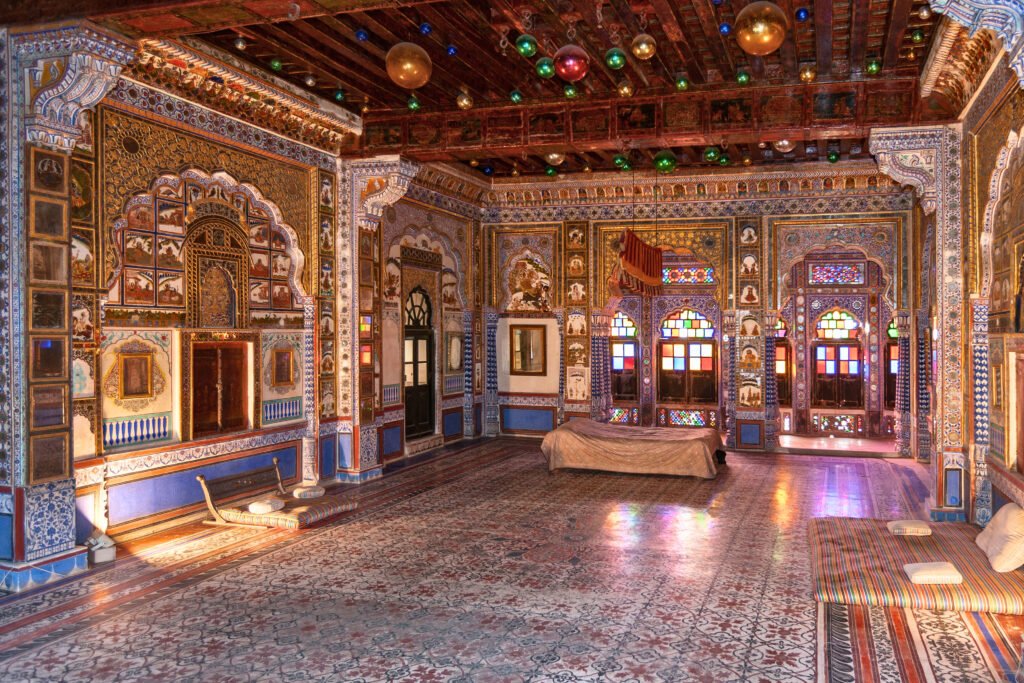
Walking Through 500 Years of Power
Mehrangarh is more than a fort—it’s a timeline of the Rathore dynasty. Maharajas came and went, but each left their mark on these stone walls. Maharaja Ajit Singh brought marble and gold, while Takhat Singh introduced elements of European architecture. You can see the layers of time in every carving, every courtyard.
During your visit, take time to explore the gallery on the fort's architectural evolution. It showcases early blueprints, sketches, and even British-era modifications made for visiting dignitaries. One lesser-known fact? Some of the carved latticework in Takhat Vilas includes hidden references to Rajput myths and moral tales—a medieval version of illustrated storytelling.
Even during the British Raj, the fort retained its autonomy. That stubborn Rajput pride? You feel it here. They weren’t just rulers; they were patrons of the arts. Mehrangarh was once home to a school of miniature painting that gave rise to some of the region’s most exquisite artworks, now housed both locally and in international museums.
A Fort Built Like a Fortress
The first time I stood before Mehrangarh’s 36-meter-high outer walls, I actually said, “Wow” out loud. They’re not just tall—they’re thick, defensive, and beautifully intimidating. Designed to withstand cannonballs, they tell you: this place was never meant to fall.
You enter through a series of dramatic gates:
• Jai Pol marks victory over Jaipur.
• Loha Pol bears the handprints of royal widows—more on that in a bit.
• Fateh Pol and others each have a story.
Inside, it’s like stepping into a royal city.
The Palaces: Rooms that Whisper
There’s something surreal about wandering through these palaces. I could almost hear the music in Phool Mahal, once used for private performances. Moti Mahal, with its stained glass windows, practically glows in the sunlight.
Moti Mahal: Audience hall, filled with grandeur and echoes of courtly discussions.
Phool Mahal: The most lavish room I’ve seen. Imagine sitars, incense, and whispered poetry.
Sheesh Mahal: If mirrors could talk, they’d tell tales of rituals and reflections.
Takhat Vilas: Maharaja Takhat Singh’s home—bold, eclectic, personal.
Beyond the palaces, don’t miss the fort's zenana (women’s quarters). The delicate architecture here, paired with jharokha windows for discreet observation, gives insight into royal life and gendered spaces. Many rooms are adorned with original frescoes that depict scenes of Krishna, Rajasthani folklore, and cosmic maps.
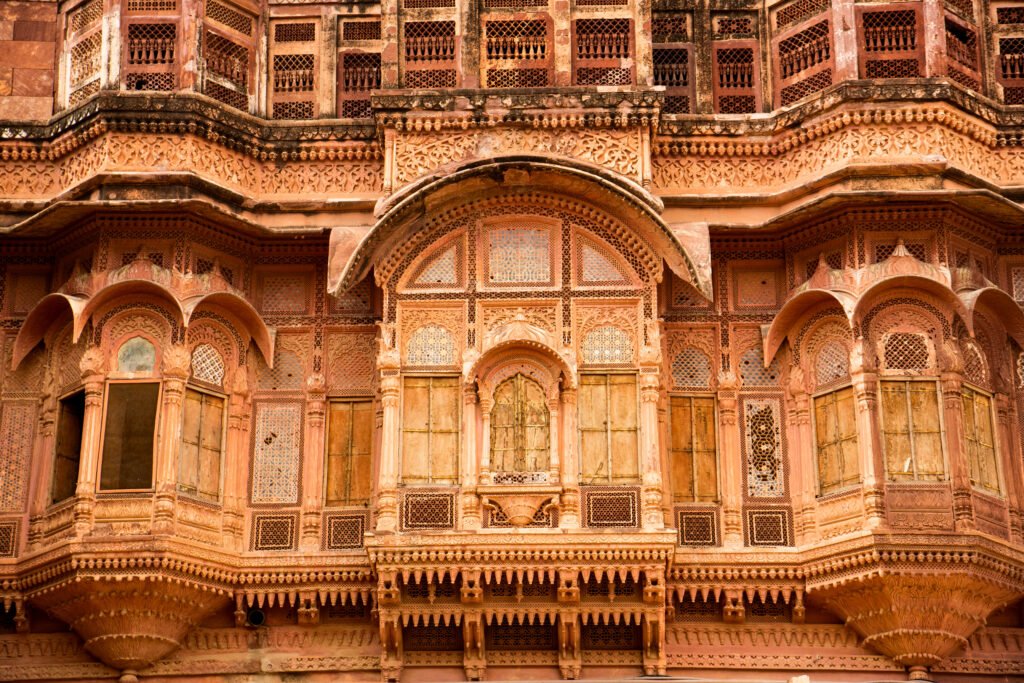
Don’t Miss the Museum
Seriously, give yourself time here. The Mehrangarh Museum is one of the best I’ve visited in India. Miniature paintings so delicate they seem alive. Ornate palanquins, elephant howdahs, and swords that probably changed history.
Curated by the Mehrangarh Museum Trust, the collection is vast but not overwhelming. If you’re a fan of weaponry or royal costumes (or just love seeing bling), you’ll geek out here.
Look out for the Marwar painting section—subtle yet powerful works that reflect devotional themes and heroic epics. And if you’re traveling with kids, the museum’s storytelling corners offer fun, digestible snippets of local lore.
Stories Etched in Stone
Mehrangarh carries its legends like armor.
The Curse Lives On? Jodhpur is still dry, they say. Coincidence? Locals still honor Cheeria Nathji.
Sati Handprints: Just before Loha Pol, you’ll see red handprints on the wall. They belonged to queens who chose to join their kings on the funeral pyres. It’s haunting, and it stays with you.
Lost Tunnels and Hidden Chambers: Some believe Mehrangarh still hides secrets underground. Treasure? Forgotten chambers? We may never know.
And here’s a tip for those intrigued by the paranormal: ask your guide about the legends of unexplained sounds at night. Some locals say they hear rustling sarees or faint music drifting from the abandoned zenana during full moons. Spooky? Maybe. Fascinating? Definitely.
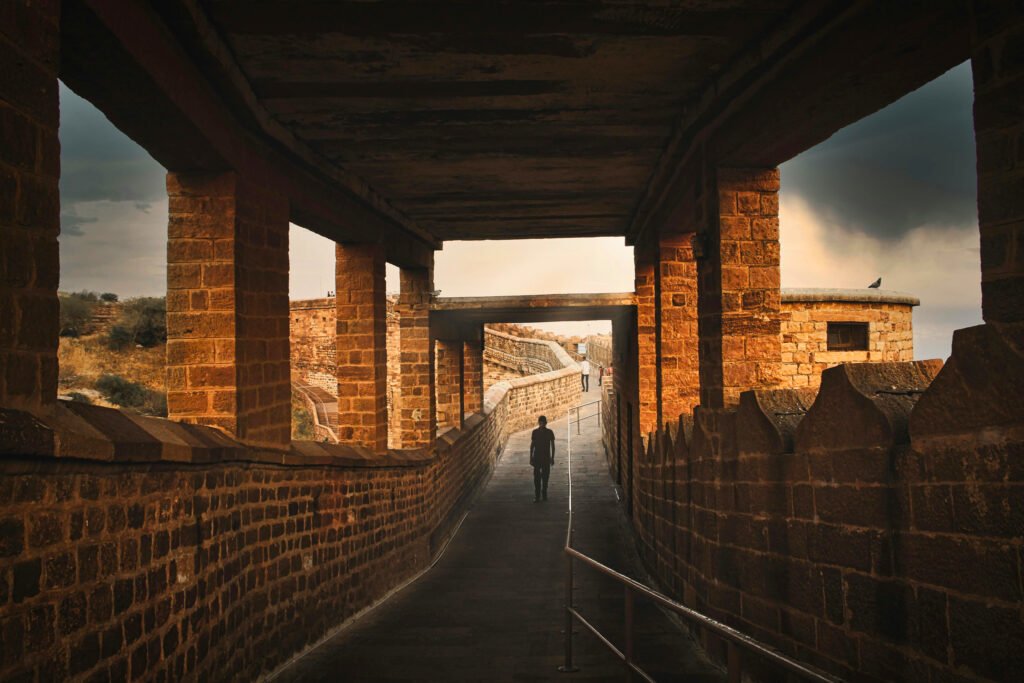
When to Visit
❄️ October to March (Winter): Peak season. Cool, dry, and perfect for walking the ramparts.
☀️ April to June (Summer): Hot. Like, fry-an-egg-on-a-stone hot. Go early.
☔ July to September (Monsoon): Lush and moody. Bring an umbrella and your camera.
Sunrise and sunset are magical here. The fort turns golden, and the Blue City below looks like something from a dream.
Jodhpur’s annual RIFF (Rajasthan International Folk Festival), held in October, is hosted right within Mehrangarh’s courtyards. Imagine centuries-old stone walls echoing with desert folk music under the stars—an experience of a lifetime.
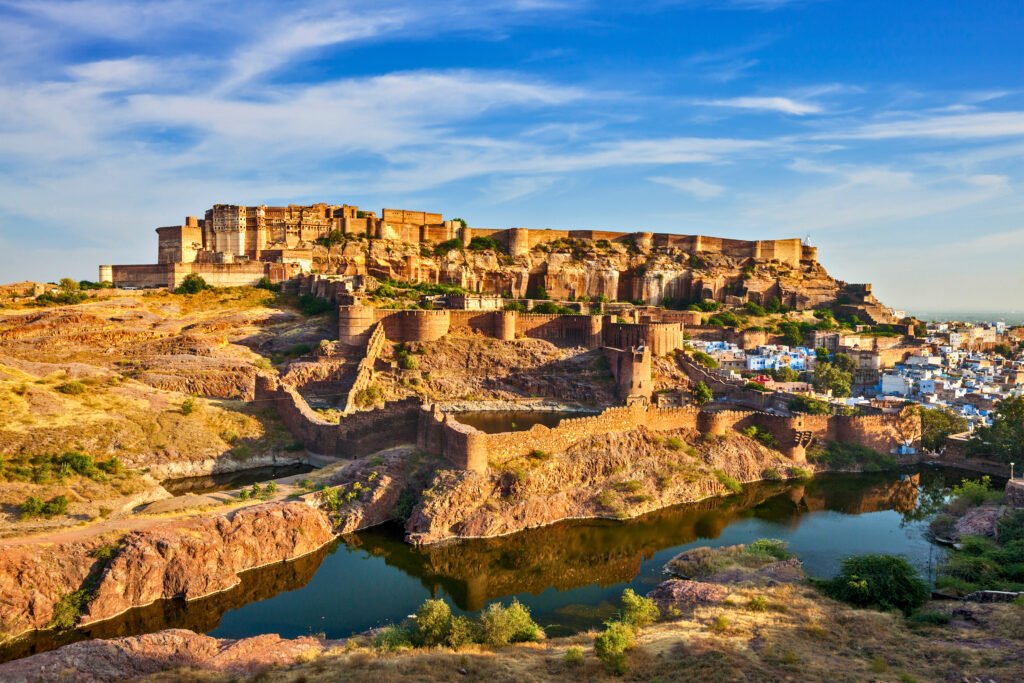
Tickets & Tours
🌍 Foreigners: ₹400-600 (worth every rupee)
🇮🇳 Indians: ₹100-200
🛗 Elevator Fee: ₹50 if you want to save your knees
🧭 Guided Tours: From ₹500; do it if you love stories and hidden details
Buy tickets online to skip the line. And don’t rush—Mehrangarh deserves at least half a day.
You can also opt for a heritage walk around the outer walls. These special tours, sometimes led by local historians, dive deep into the fort’s relationship with Jodhpur’s development as a trading and cultural hub.
Travel Tips from Experience
⚠️ Not wheelchair friendly in many areas. Be prepared for steps.
🧴 Bring water, sunscreen, and a hat.
🧕 Modest dress is a good idea, especially for temple visits.
🔭 Don’t leave without climbing to the cannon terrace. That view? Unreal.
☕ Treat yourself to chai at the Chokelao Mahal café inside the fort.
📷 Photography tip: The golden hour before sunset is best for capturing the fort’s sandstone glow.
How to Get There
✈️ Fly into Jodhpur Airport (15–20 min by taxi)
🚆 Jodhpur Junction is well-connected by rail
🚗 Scenic drives from Jaipur or Udaipur via NH62 or NH25
Within the city, it’s easy to hire a tuk-tuk or taxi. Or be brave and hike up the slope like the locals do. For something unique, try the zipline experience with Flying Fox Jodhpur—it offers aerial views of the fort, desert terrain, and lake below.
While You’re in the Neighborhood…
🏛️ Jaswant Thada: White marble, reflecting pools, and peace.
🏰 Umaid Bhawan Palace: Part museum, part hotel, part royal residence.
🌵 Rao Jodha Desert Rock Park: Nature lovers, this is your spot.
🧺 Sardar Market: Spices, textiles, and the kind of chaos that makes India amazing.
🍛 Eat: Grab a thali at Gypsy or dine with a fort view at Indique.
Want a souvenir? Look for block-printed fabrics, leather goods, handcrafted silver, or traditional Rajasthani puppets. And if time allows, take a short drive to Mandore, the original capital of Marwar, to see its cenotaphs and gardens.
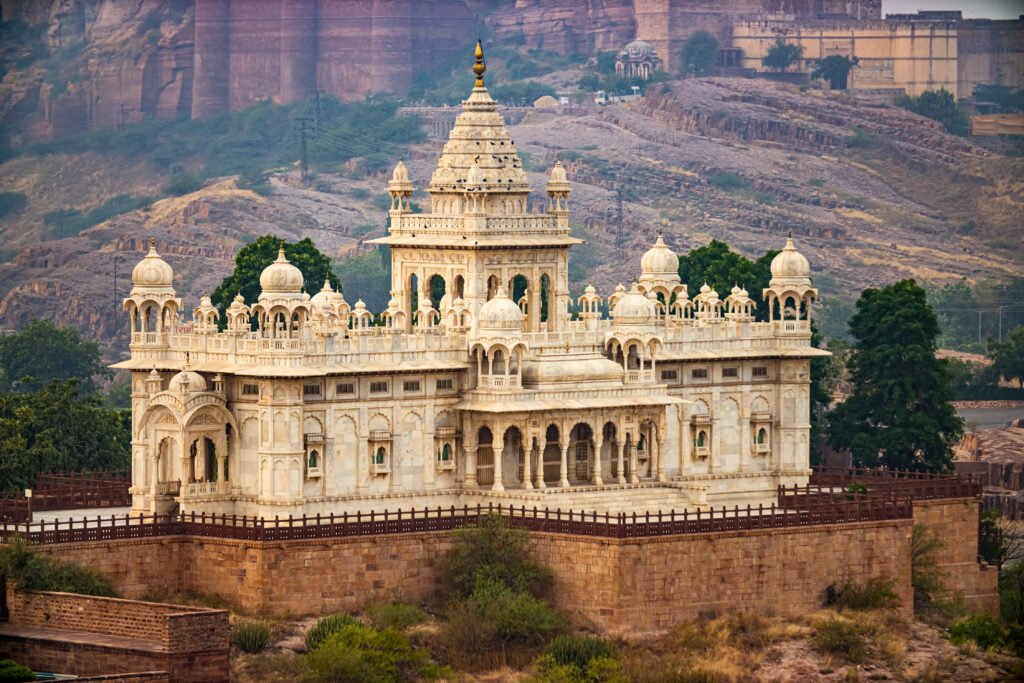
Why Mehrangarh Will Stay With You
Some places you see and forget. Mehrangarh isn’t one of them. Maybe it’s the legends. Maybe it’s the sheer scale. Maybe it’s the way you feel small yet connected to something vast and old. But this place gets under your skin. You’ll talk about it for years.
I came expecting a fort. I left with a story.
🧭 Been to Mehrangarh? Tell us what moved you in the comments.
👉 And if you love castles with epic views and backstories that give you chills, check out our guides to Mont Saint-Michel and Castillo de San Marcos.
🏰✨ Need more inspiration? Follow us on Instagram, Pinterest, Facebook, and X for more castle guides, hidden gems, and travel stories that go beyond the usual tourist trails. And if this post helped you out, hit the blog for more unforgettable destinations. Adventure awaits—and Mehrangarh Fort is just the beginning.

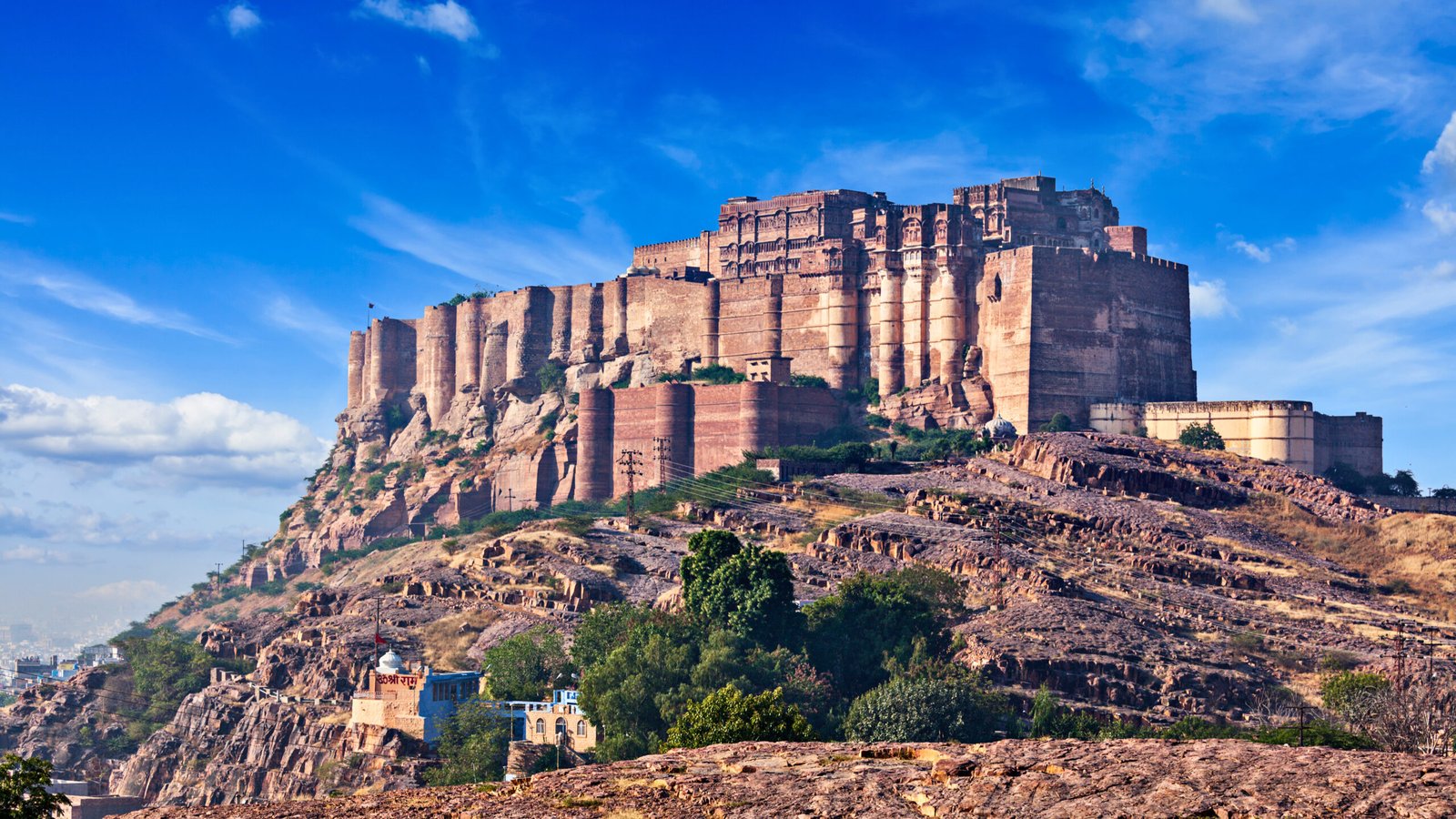









































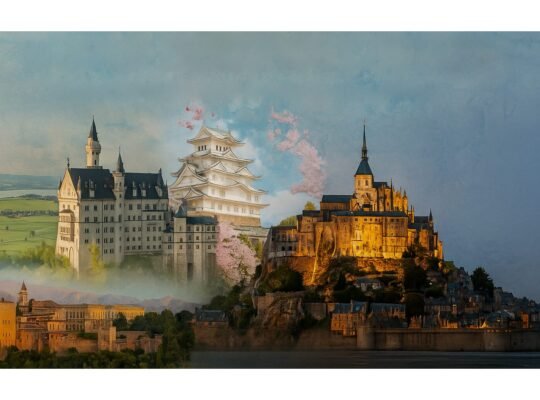
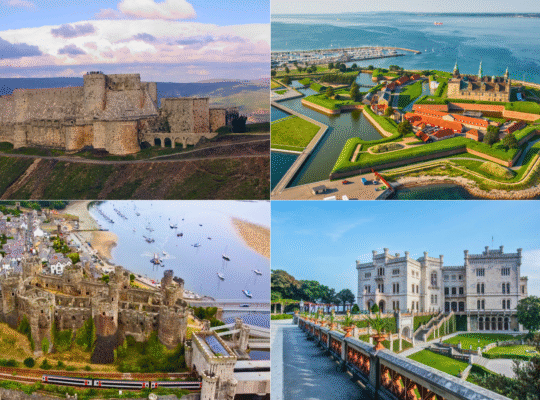
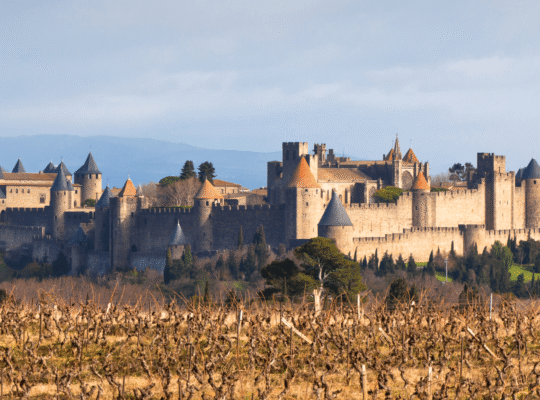

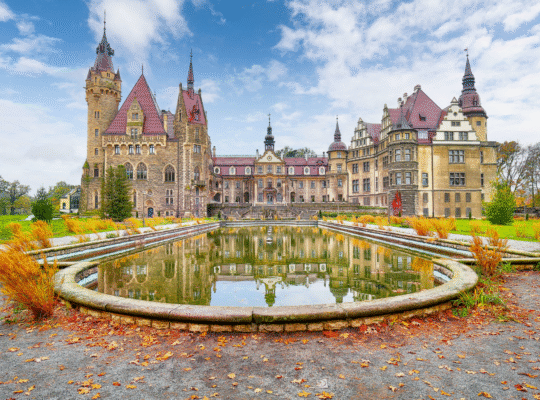
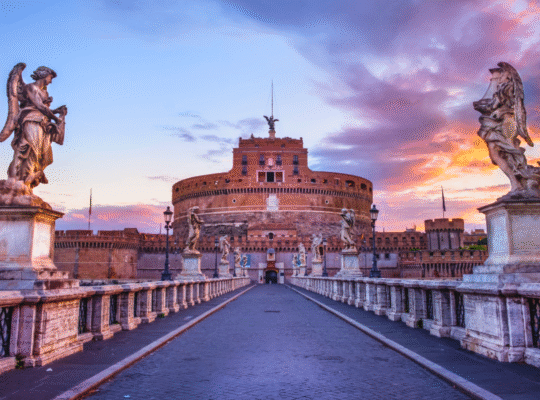

1 Comment